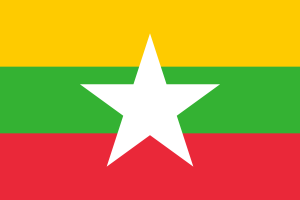Myanmar’s leader Ms Suu Kyi criticized for lack of action on the Rohingya persecution.
The Rohingya are a Muslim minority in the primarily-Buddhist country, and have faced discrimination for years. But since October, a counterinsurgency crackdown has likely resulted in mass killings, according to a new UN report.
The Rohingya minority faces official and social persecution in majority-Buddhist Myanmar, where most do not have citizenship. They are frequently considered illegal immigrants from Bangladesh, despite living in Myanmar for generations. In November, a senior UN official told The Guardian that Myanmar’s « ultimate goal » appeared to be « ethnic cleansing of the Rohingya minority.
Myanmar officials have denied reports of abuses. Meanwhile, a new Rohingya insurgent group calling itself Harakah al-Yaqin, or the Faith Movement, has sprung up, according to a recent report from the International Crisis Group, leading to a brutal counterinsurgency crackdown in Rakhine state.
Many international figures have criticized Myanmar’s new leader, former political prisoner and Nobel Peace Prize winner Aung San Suu Kyi for her lack of action on the issue. In December, more than a dozen other Nobel laureates and ten other global leaders penned an open letter on the Rohingya’s persecution, saying « it has all the hallmarks of recent past tragedies – Rwanda, Darfur, Bosnia, Kosovo » – and criticizing the response from Ms. Suu Kyi, the State Counsellor.Suu Kyi’s government also announced last week that it would investigate the allegations in the recent UN report, despite previously denying reports of abuse.
Independent verification of the human rights abuses will be difficult, however, since the military, which is not controlled by Suu Kyi, has cut off access to Rakhine. « The attacks against the Rohingya population in the area (killings, enforced disappearances, torture and inhuman treatment, rape and other forms of sexual violence, arbitrary detention, deportation and forced transfer as a result of violence and persecution) seems to have been widespread as well as systematic, indicating the very likely commission of crimes against humanity (as the High Commissioner concluded already in June 2016), » the UN report notes.
